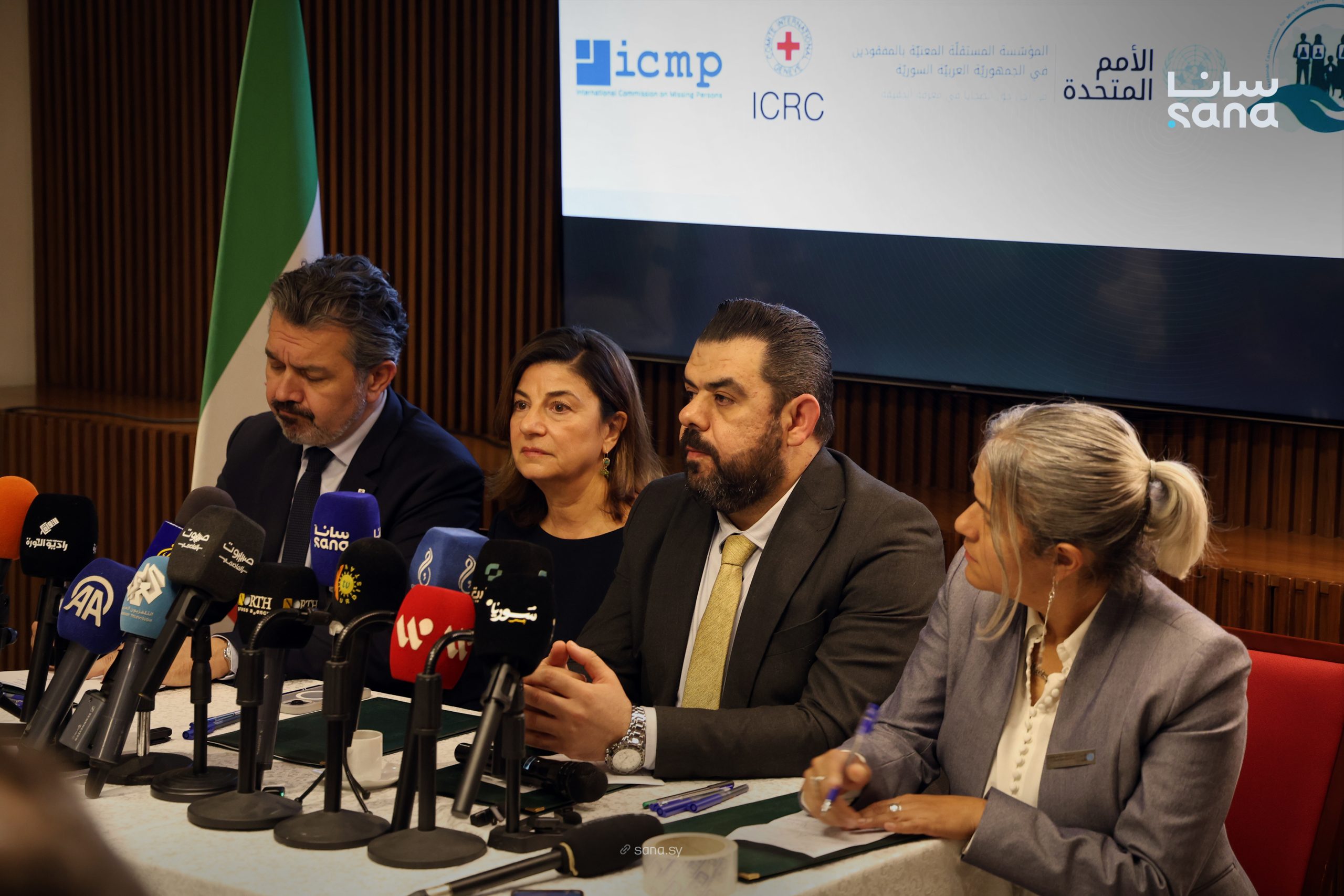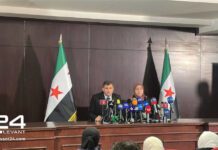
Syria’s National Commission for Missing Persons (NCMP) signed a joint declaration of principles with three leading international organizations to coordinate efforts in uncovering the fate of hundreds of thousands of missing and forcibly disappeared people. The agreement, announced yesterday, November 5, in Damascus, brings together the International Commission on Missing Persons (ICMP), the International Committee of the Red Cross (ICRC) and the International Independent Foundation for Missing Persons (IIMP).
Zeina Shahla, media adviser to the NCMP, told the Syrian Arab News Agency (SANA) the declaration “aims to unify efforts, avoid redundancy, and ensure transparency, inclusiveness and effectiveness.” She said the cooperation will strengthen national institutions and center victims’ families “at the heart of the process” to reveal the fate of their loved ones.
The declaration also reaffirms a commitment to international humanitarian and human rights law, as well as the principles of neutrality and independence. It calls for technical, legal and institutional support to help the commission lead a national search process grounded in dignity, truth and respect for victims’ rights.
International Cooperation Expands Search Capacity
Carla Quintana, head of the IIMP in Syria, told SANA that the declaration “marks the first time that three international institutions specialized in missing persons are working directly with Syria’s national body.” She said the effort demonstrates a shared commitment “to bring the truth to Syrian society,” adding that the issue affects “not only families but the entire nation.”
Director-general of the ICMP, Kathryne Bomberger, emphasized that the initiative “embodies international support for Syria to address decades of disappearances caused by the Assad regime, ISIS, migration and natural disasters.” She said the ICMP will help the commission establish a central registry, enact a law on missing persons, and train Syrian experts in forensic genetics, archaeology and open-source systems to identify remains and collect evidence for judicial proceedings.
The ICRC mission in Syria head, Stephane Sakalian called the declaration “a vital step to unify the tools, expertise and resources” needed to determine the fate of the missing. He noted that experience in other countries shows the search “may take years, even decades,” but stressed that the process must start now.
A New Phase in the Search for Truth
Quintana, who also heads the UN Independent Commission on Missing Persons in Syria, told Anadolu Agency that field investigations began only after the fall of the Assad regime made access possible. She said her team has “verifiable and credible information that some of the missing are still alive.”
She added that the scale of the tragedy “exceeds the capacity of any single institution,” urging collaboration among Syrian authorities, international organizations, and civil society. The use of forensic science and artificial intelligence, she noted, is essential to unify scattered data and identify both the dead and the living.
The creation of the NCMP by Presidential Decree No. 19 in May 2025 signaled the start of a formal national mechanism to document cases and support families. With this week’s agreement, Syria and its partners are taking what observers call the most comprehensive step yet toward truth and accountability in one of the world’s most complex missing persons crises.








